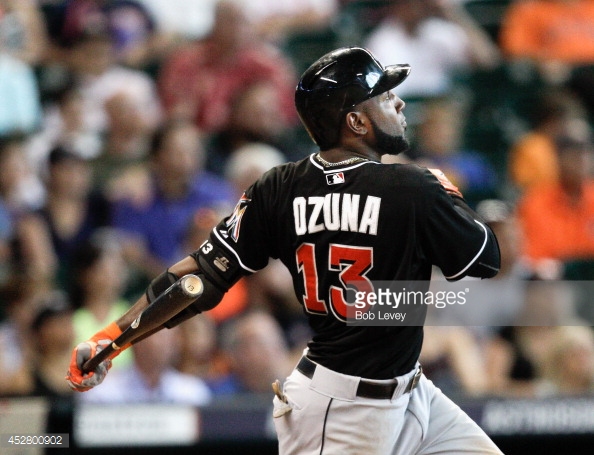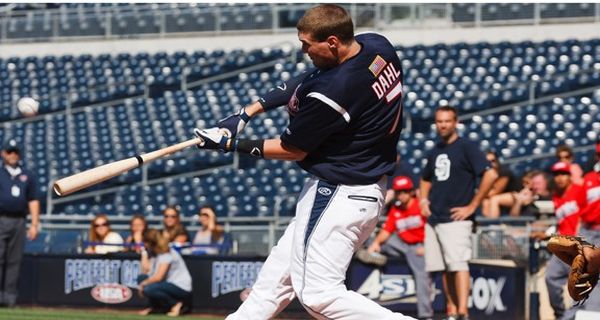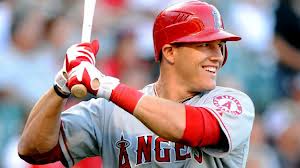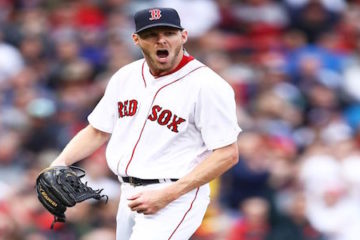The Bourn Irrelevancy
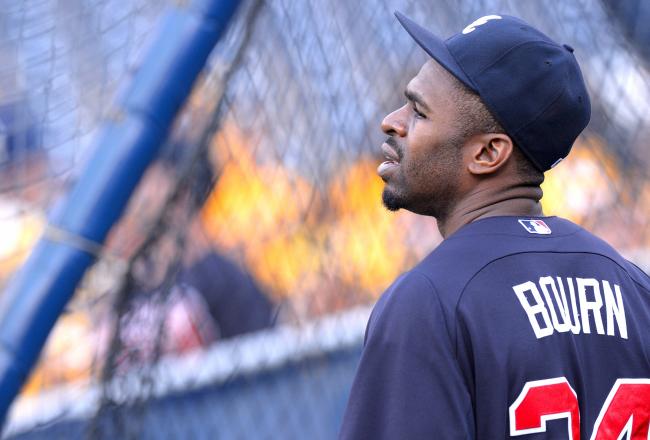
The hardest lesson for the casual baseball fan to learn is that baseball free agency does not have the same impact as football and basketball free agency. Lebron James can change teams (any team) and it will shake the delicate balance of power in the NBA. Drew Brees and Peyton Manning can change teams and it will change the balance of power in the NFL. Even baseball’s elite players can change teams and if they choose the wrong one, that change won’t register on the MLB Richter Scale.
Is Michael Bourn an elite player? I suppose that depends on how far down the list you want to go. Baseball-reference.com has him at 6.0 WAR from last season. That didn’t put him in the top ten, but he was fairly close. He clearly is the best Indians player going into next season. In terms of relevance you would think it would get no more relevant than that. Given the boat load of changes the team made in the offseason you would think they would be relevant, but that also depends on your definition of relevance.
In
- Michael Bourn– 6.0 WAR
- Nick Swisher– 3.5 WAR
- Brett Myers — 0.9 WAR
- Mark Reynolds– 0.9 WAR (excluding fielding)
- Matt Albers– 1.1 WAR
Out
- Casey Kotchman– -1.1 WAR
- Travis Hafner– 0.7 WAR
- Shelley Duncan– -0.6 WAR
- Jeanmar Gomez– -1.2 WAR
- Tony Sipp– 0.0 WAR
That is quite a difference there. When we add up those totals we get 12.4 WAR coming in and -2.2 WAR departing for a difference of nearly 15 games. Of course, if I had enumerated every change that would be one thing, but I convienently left out the fact that Shin-Soo Choo was effectively traded for Drew Stubbs. We can remove about three wins from that exchange back to a net twelve games.
Michael Bourn accounts for half of that difference. So, how exactly would his addition be irrelevant? Vince Gennaro (the president of SABR) wrote Diamond Dollars a few years ago. Gennaro’s work is top notch and he serves as an advisor for many teams. One of the ideas in the book is that there is a certain sweet spot where it makes sense for teams to make capital investments in their team. He was looking at it from an economic perspective. The idea is that even spending as the Indians have, you would not improve yourself by more than ten to fifteen games in the standings. Therefore, you should wait until you have a 80-85 win club to put out that kind of money.
You can see the wheels spinning in Cleveland and if you allow yourself to go down that rabbit hole you can buy into that line of thinking. They won 68 games a year ago, so if they make the changes they made (netting them between 12 and 15 games), and Ubaldo Jimenez and Justin Masterson return to form (netting them three to five more wins), and if Michael Brantley and Drew Stubbs are more productive flanking Bourn (rather than having to play center themselves), then you can easily envision the Indians getting to at least 85 wins and therefore in the wild card hunt.
That line of thinking is wrought with issues. First, while the Indians won 68 games a year ago (meaning they would need 17 to get to the magic 85 win mark), they should have won only 64 games according to their Pythagorean record. Mind you, Pythagorean records aren’t the end all be all of human existence, but the fact remains that the Indians were a -178 in run differential last season as a team. Much of that malaise came from the mound and the mound was one thing they did not completely fix in the offseason. Moreover, their run differential was by far the worst in the American League last season.
We have seen our fair share of worst to firsts in the past twenty or so seasons, but those situations are all very similar in the grand scheme of things. None of those squads involved a group of mercenaries that bandied together to vault a team to the top. Instead, they were all fairly young squads that came of age at the same time. They also involved a certain amount of serendipity that can never be a part of a coherent plan at the beginning of the season. There are simply too many variables to expect such good fortune to come. In lay man’s terms these are what we like to call “if..then” statements.
- If Michael Bourn adjusts immediately to a new league and continues his current level of production…
- If Drew Stubbs bounces back and produces like he did before 2012…
- If Lonnie Chisenhall comes of age and grabs the third base position by the horns…
- If Jason Kipnis continues to develop into a quality second baseman…
- If Mark Reynolds continues to produce as a hitter and Terry Francona successfully hides his glove…
- If Ubaldo Jimenez and Justin Masterson bounce back from disappointing seasons…
- If Daisuke Matsuzaka and/or Trevor Bauer turn in productive seasons…
- If Chris Perez throws in another productive season as a closer…
Taken by themselves, these are all reasonable expectations, but the problem with the if…then game is that all the ifs must come true for the season to be a success. When a team has only two or three ifs then it is reasonable to expect success. If there are more than five and we are getting close to ten (I may have left out one or two), then we are getting to the point where success is all the more elusive. At the end of the day, the Indians have the same kind of expectations as the Kansas City Royals. Both teams are banking on the other’s failure along with the impending collapse of the Chicago White Sox.
Fantasy Impact
Michael Bourn is a unique player. His WAR would suggest that he is one of the elite players in baseball, and while that is true it is also misleading. He has an elite skill that translates to mutliple points on the map. His elite speed makes him an elite defender (that doesn’t help you) and it gives you stolen base numbers (that does help you). It also helps mitigate whatever weaknesses might be occurring elsewhere. He will hit for a decent average because of the speed and he will have a decent OBP.
This is where the team steps into play. Those of us that live in the statistical world love to isolate players from their environments, but you cannot do that as a fantasy player. Runs and RBI are too important in fantasy baseball and you have to have a good team to maximize that potential. Players like Bourn in particular are dependent on guys to drive him in. The Indians are certainly not a terrible offense, but they are not an elite offense either. Nick Swisher and Mark Reynolds certainly add power to the mix, but you are also removing Shin-Soo Choo from the equation. Additionally, you are talking about a team that likely will be in the high 70s in the win department. Come August and September, that is a team that will stop pushing and might even be one that dumps in late July or August.
At the end of the day, I like Bourn as a fantasy player and love him as a real one. He will likely give you in the neighborhood of 40 steals and will score somewhere around 90 runs. I just wish he would have signed elsewhere. Could you imagine him in Texas with that stadium and lineup? So, calling Bourn irrelevant may be a stretch, but he definitely marginalized himself by signing in Cleveland.


